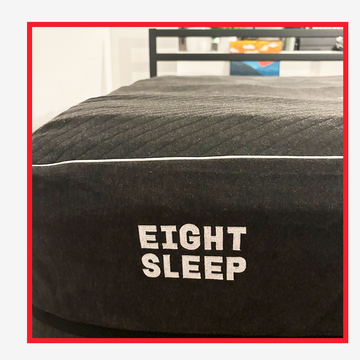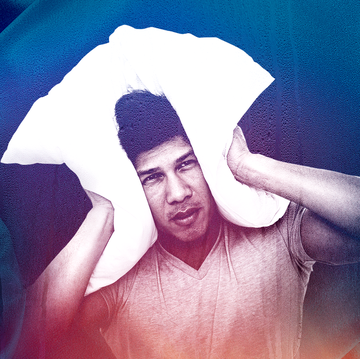One night spent tossing and turning is enough to leave you bleary-eyed and cranky the next morning. But more serious effects of a poor’s night sleep might be lurking inside your brain, a new study from Washington University in Saint Louis suggests.
In the study, researchers had 17 healthy adults wear an activity monitor to measure how well they were sleeping at home. Then, they came into the lab to spend the night in a dark, soundproof, comfortable room—perfect for sleeping.
Half of them were able to snooze normally, while the other half had their sleep disrupted by beeps whenever they lapsed into the restorative stage of sleep. The next morning, they underwent a lumbar puncture to measure levels of dementia-related proteins in their spinal fluid. After about a month, the participants returned, and spent a night in the opposite condition as before.
The findings? After just one night of interrupted sleep, the people experienced a 10 percent increase in their amyloid beta levels, a specific protein associated with Alzheimer’s disease, the researchers said in a statement.
There was no change in levels of tau—another brain protein linked to Alzheimer’s and other neurological conditions—after one night of disrupted sleep. But the people whose activity trackers showed consistent poor sleep in the home portion of the study did show a spike in tau levels.
That’s probably because amyloid levels change more quickly than tau levels do—so changes in tau may only be noticeable after consistent poor sleep, the researchers believe. (For more health news delivered right to your inbox, sign up for our Daily Dose newsletter.)
Now, it’s also unlikely that the changes seen here after one night of poor sleep would be enough to influence your overall risk of Alzheimer’s. The levels will probably decrease the next time you sleep normally, study author Yo-El Ju, M.D. said in the statement. The main concern, she says, is for people who chronically struggle with poor sleep—in those cases, the proteins may become chronically elevated.
Another problem: Even if you wake up feeling crappy, you might not even know you didn’t sleep through the night. In the study, the participants in the disrupted group reported feeling tired and un-refreshed the next morning—even though they slept just as long as usual, and mostly didn’t remember waking up at night at all. (Want to get moving during the day? Here’s how to stretch at your desk.)
That’s similarly seen in a condition called sleep apnea, where you actually stop breathing in your sleep (Here are 7 surprising signs you have it). Sleep apnea disrupts slow-wave sleep—like the participants experienced in the experiment—and often wake up feeling sleepy.
The researchers say that further studies are needed to determine whether improving sleep quality—say, by treating sleep disorders like sleep apnea—can actually help reduce the risk of Alzheimer’s. In the meantime, there’s no downside to improving your shuteye: Try these 5 ways to sleep better every night.













